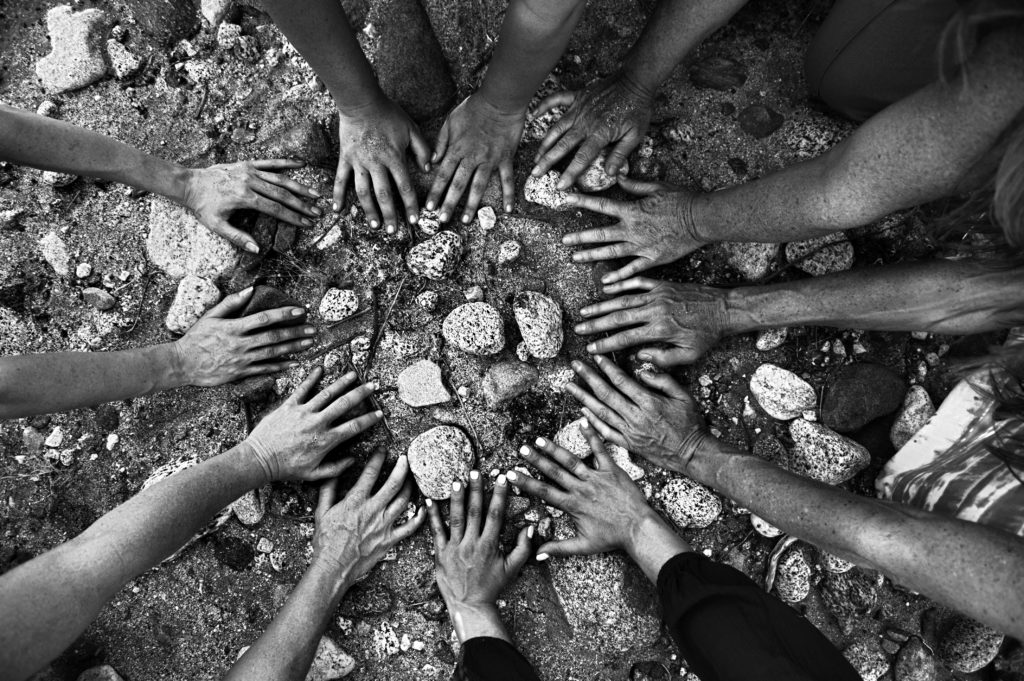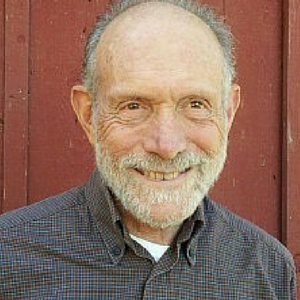
Though I pride myself on being familiar with Gandhi’s voluminous writings, there was one aspect of his thinking that never registered with me until I saw the back window of a truck the other day with a death’s head on the rear window and a bumper sticker that read, POLITICALLY INCORRECT / AND PROUD OF IT. When people call themselves “the Proud Boys” and display bumper stickers like that, what they’re telling us, between the lines, is they feel disrespected. We had better listen to them. Psychiatrist James Gilligan, who worked with men incarcerated for violent crimes for 25 years, reported that, “I have yet to see a serious act of violence that was not provoked by the experience of feeling shamed and humiliated, disrespected and ridiculed.”
Today there are 73 million Americans who have been outvoted, but they have not been won over. Not all of them are less educated or less well off — as in Hitler’s Germany and other totalitarian regimes, intellectual endowment does not, apparently, automatically confer reason or moral awareness. That said, however, many are in that class, feeling disrespected and sometimes ridiculed. A few of them are quite violent. This is why Gandhi, who instinctively shrank from any disrespect toward anyone, seized on Ruskin’s idea that manual labor is worth just as much as the work of a lawyer, professor, or corporate manager. He stressed the need, on the one hand, to develop the “intellectual life of the villages,” and on the other that his followers, who were by and large well-educated and well off, to do “bread labour” for their daily upkeep. If we had picked up on this aspect of his social program we may have been able to head off the prejudice that resulted in four years of Presidential disaster and is not going to go away by itself on January 20th .
It’s not too late to rebuild. We have made progress in other areas, but as political philosopher Michael Sandel recently wrote in the New York Times, “disdain for the less educated is the last acceptable prejudice,” and, “it’s having a corrosive effect on American life” — unfortunately an understatement. Sandel focuses on the way people without a college degree are left out of our increasingly technological meritocracy, and Arlie Hochschild has also covered this very well in her sensitive study of Bush voters who, while they might be voting against their economic needs, are actually voting to serve their emotional needs (see her Strangers in Their Own Land). And as Gilligan points out, when that emotional need is for respect — which after all every human being needs and deserves — the resentment can take to violence.
This kind of resentment has in fact had devastating consequences throughout history. In the Khmer Rouge uprisings in Cambodia you could be summarily executed because you wore glasses and therefore looked like an “intellectual;” the Chinese revolution had the same feature, and so does Fascist populism, despite its being politically the opposite of its communist counterparts. I’m old enough to remember a newsreel where Mussolini’s elite soldiers pull out their daggers and cry in unison, “The greatest intellect in the world can be silenced by THIS!” Making Trump a figure of scorn, justified as it may feel it to be, is only making things worse. When Hillary Clinton called his followers “deplorables” it probably did her — and us — more damage than then FBI director Comey’s ill-timed noises about some mishandled emails. The communists wanted to eliminate intellectuals; Gandhi wanted to wake them up to the dangers of their prejudice. It’s obvious which way leads to disastrous violence and which can take us to beloved community.
I’ve been stressing the dangers of disdain, but it’s just as important to note that the opposite is also true: when you can respect the person of an opponent even while resisting their injustice you gain a powerful tool in creatively reducing conflict. British historian Arnold Toynbee famously pointed out about Gandhi that, “he made it impossible to go on ruling India, but he made it possible for us to leave without rancour and without humiliation.” That skill was a critical component of Gandhi’s belief in democracy and the power of nonviolence to protect it. As he said in 1938, “Democracy and violence can ill go together. The nations that are today nominally democratic have either to become frankly totalitarian or, if they are to become truly democratic, they must become courageously nonviolent.”
Disdain for the less educated is embedded in our thoughts and institutions, but for that very reason we have several ways to tackle it. We can be rebuilding on at least three levels: personal, structural, and cultural.
Personal.
I am a great believer in the power of the individual. After all isn’t the most destructive myth of the material age the belief that we are “just one person,” that we have no inner resources? It is no coincidence Gandhi and Mother Teresa — who said “I believe in person to person” — got big by starting small. They tackled the foundational myth of human insignificance that lies at the root of the problem we’re now faced with in ominous forms.
I grew up lower middle class economically and had the advantage of a good education, which had, as I now recognize, the serious disadvantage that I did not escape a certain feeling of superiority to the “low-brow” world around me, especially as television began its devastating drive toward the lowest common denominator. Whenever this feeling sneaks up on me now, I immediately remind myself that everyone has the same spiritual core, the same exact value as a human being in the sacredness of life. My subtle prejudice felt good to my ego, no doubt, but was causing a not-so-subtle sense of alienation from my fellow beings, which is a deep kind of distress whether we’re conscious of it or not. When we make the kind of correction I’m talking about, and especially when it becomes second nature, it becomes much easier to have a fruitful conversation with people who are coming from the other side of the political spectrum, and sometimes persuade them. It is, after all, a core principle of nonviolence that “the person is not the problem;” someone may hold the most outlandish, fantastical and dangerous ideas; but it’s the ideas we have to eliminate, not the people holding them.
Of course this is small scale, but again, inner and relational work is the foundation of the structural and cultural changes that can eventually follow.
Structural.
When white supremacists cry, “you will not replace us” they are expressing fear of people they consider different, and have no way passed that fear as long as they cannot conceive of any relationship — like cooperation, like unity in diversity — other than the pseudo-Darwinian competition they think life is based on. That said, there is an underlying quite concrete reality behind the fear, as Sandel has correctly pointed out. In our increasingly technical, and thus technocratic economy that favors huge corporations and the people who know how to run them, people without these skills or ways to develop them are being increasingly replaced by others, and often by machines.
For every reason then; environmental, economic, and social, healing must include the long-term process of building down our technocratic and centralizing economy. “If India is to be nonviolent,” Gandhi said, “she must decentralize many things.” And so must we, to restore human scale and meaningful work that’s available to people across the societal spectrum. Fortunately, again, experiments in this kind of future are happening: Transition Towns, other intentional communities, revitalized family and organic farming, CSA’s, and local coinage and cooperatives, to give a sense of the richness and variety. Benefit corporations and large-scale worker-owned corporations like the highly successful Mondragón conglomerate in the Basque region of northern Spain are another example.
Cultural.
We now go to an even more far-reaching effort we need to take up, and it’s less clear how to go about it: nothing less than changing the underlying narrative of Western Civilization. Peter Hammond Schwartz, writing in Salon on December 13th, has finally pointed out the rarely if ever mentioned underlying reason Democrats seem to never gain any traction in the ‘culture war’ with Republicans. He calls it “the cosmological emptiness of liberalism: Right-wingers have a theory of human nature. Democrats have failure.” That is, as I have argued in my recent book, The Third Harmony: Nonviolence and the New Story of Human Nature, we are at the end of the materialist paradigm, but have not been able to lift up the alternative. We are still stranded in a cultural story, that causes people, no matter what class they identify with, to think they are separate, material objects with no control over their fate in a random and meaningless, universe. The commitment to radical separateness condemns us to a life of competition and violence. Far beyond the Democratic or any political party our civilization as a whole, with our imitators around the world, keeps us from believing in empathy, goodness, or community because they give us no way to explain the effectiveness of cooperation and nonviolence even if they happen to catch sight of these forces doing their work. The Democrats’ plea for “compassion” falls on paradigm-deafened ears.
Today, U.S. servicemen and women feel they are driven to suicide in appalling numbers because, as they often say, “I lost my soul” in Iraq or Afghanistan. You cannot “lose” your soul, in my belief system, but you can certainly lose sight of it. Thus, again, it is not just the less formally educated who are suffering the lack of self-esteem: all of us are starting from a baseline of a lack of respect for life, and consequently for ourselves, built into the false narrative that conditions our belief in who we are. Of course we will be sensitive to any disrespect based on our race, class, educational level or whatever, because we’re suffering from a lack of self-worth to begin with. You need a robust sense of personal value to be able to laugh something like that off. Even those who feel superior based on any of those criteria feel unconsciously diminished since they also cannot really grasp what their actual value is, which is not theirs but everyone’s.
The Devil is in the narrative, and that narrative is ripe for replacement. Just as this need to replace it has become urgent, the human inheritance of the world’s wisdom traditions, which is where the healthier and more real story comes down to us, has become more accessible. This it’s the biggest obstacle to accessing it has become its greatest support, as the “new science” is confirming it from many angles.
How paradigms change is mysterious; you cannot vote on them. But you can learn them — learn, for example, the scientific evidence for our non-material, cooperative nature. endowed with a critical capacity to change. Last month, the New internationalist reported on a 2015 study conducted at the Max Planck Institute for Human Cognitive and Brain Sciences in Leipzig, showing that, “through the cultivation of our mind and heart, we can change our motivations from self-centered and selfish to ones that are more caring and affiliative, and these in turn promote prosocial behavior and cooperation.” These motivations and behaviors become all the more natural when we begin to sense that life is sacred, and our sacredness does not come from our intellectual or financial prowess but from the very fact that we are human beings.
As the new year comes in, and the imminent threat of totalitarianism is at least forestalled, let’s take the deeper dive, personal and societal, to its underlying causes and make sure it will not rise up again.








